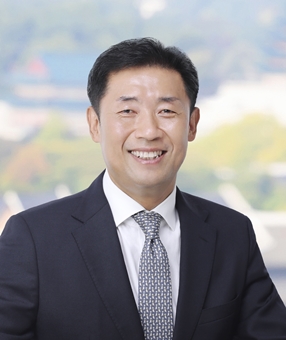On May 10, 2022, Yoon Suk-yeol was sworn in as the 20th President of the Republic of Korea. Yoon’s Transition Committee announced on April 28, 2022 the new administration’s key energy policies. The main directions are (i) rational harmony between renewable energy and nuclear power, (ii) transition of policy focus from expansion of supply to management of demand, and (iii) full utilization of the energy market’s functions. Further, the committee announced five specific goals: (i) achievable carbon neutrality and energy mix; (ii) optimization of demand through markets; (iii) promotion of the energy industry as a new growth driver; (iv) robust resource security; and (v) just and fair energy transition. Against this backdrop, we summarize below the key aspects of these energy policies.
Transition to Green Economy via Science-Based Carbon Neutrality
The Yoon administration plans to devise and codify practical measures to reduce greenhouse gas emissions for each industry sector, while complying with the national greenhouse gas reduction target for 2030 (“NDC”).
For instance, to facilitate green transition in the mobility sector, the new administration plans to increase the targets for purchasing environment-friendly vehicles, strengthen obligations to install electric vehicle (“EV”) charging stations, and introduce measures for the reduction of EV owners’ charging costs burden.
In addition, following the EU’s example, the new administration intends to include nuclear power in the Korean Green Taxonomy with a plan to apply it to relevant markets, starting from 2023. Moreover, to improve the competitiveness of green industries and green enterprises, the new administration aims to provide dedicated support to five new green industries which include climate technology, environmental IoT and bio-gas.
Active Utilization of Nuclear Power and Enhancement of its Ecosystem
As a means to enhance energy security and accomplish carbon neutrality, the new administration plans to actively utilize nuclear power. For example, it currently plans to resume construction of Shinhanwool 3 and 4 (two nuclear reactors whose construction has been halted during the previous administration), and allow renewal of expired operation permits for nuclear power plants (i.e., Kori 1 and 2) with the view of increasing the share of nuclear power in the energy mix by 2030.
The new administration plans to actively pursue overseas projects with the goal of exporting at least 10 nuclear reactors by 2030. The new administration will establish a ‘Nuclear Power Plant Export Strategy Promotion Council’ (proposed) to provide comprehensive support to achieve such goal. Simultaneously, the new administration also plans to solidify the nuclear power diplomatic cooperation with the United States, engage in R&D for next-generation nuclear power technologies, enact laws and regulations on the management of high-level radioactive wastes, and establish organizations dedicated to handling these matters. In addition, the new administration will implement various measures to secure the safety of nuclear power by ensuring the expertise and independence of the Nuclear Safety and Security Commission and implementing rigorous safety checks at each stage of the permit/license process.
Energy Security & Creation of New Energy Industries/Markets
The new administration will, in order to ensure energy security, adjust (i) the energy mix, taking into account the anticipated increase in the level of nuclear power and (ii) the NDC for energy/industry/transportation sectors. The new administration will also implement measures to enhance the stable supply and demand of natural resources. Such measures will include (i) expanding resource security objectives to also cover hydrogen and key minerals and (ii) the revitalization of the overseas natural resource industrial ecosystem mainly through promotion of the private sector.
In addition, the new administration proposes to promote the advancement of solar/wind power industries, innovation in demand management for high-efficiency/low-consumption energy and nurturing new industries (including hydrogen industry) that are linked with fourth industrial revolution technologies. In relation to the power grid, the new administration aims to establish a future-oriented power grid by (i) strengthening the independence and expertise of the regulatory governance over electricity market and price, (ii) promoting an electricity market based on competition and market principles and (iii) ensuring stable supply.
Implications
The new administration makes it clear that it will increase the level of nuclear power as a resource for power generation. The new administration is also expected to implement measures to nurture and promote the renewable energy industry given that (i) it has expressed its determination to accomplish carbon neutrality and (ii) the growth of renewable energy is a global trend which cannot be turned back. However, as details of the administration’s objectives will be further elaborated through energy related laws or the Basic Plan of Long-Term Electricity Supply and Demand, it would be necessary to closely monitor follow-up discussions among relevant stakeholders and the legislative processes on these topics.
Related Topics
#Carbon neutrality #Nuclear power #Energy Security #Energy #Legal Update







